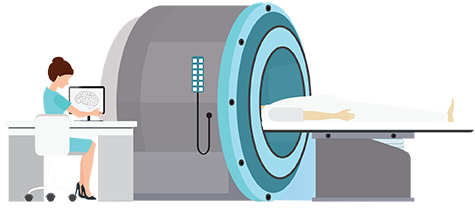

So, you know you are interested in radiology and the fascinating process of peering inside the human body, but you may be unsure which radiology degree is best for you. Hopefully this post will provide you with the basic framework for determining the best path to take.
First and foremost, you’ve got to find out what your state’s licensing requirements are to work with radiology and x-ray equipment. You will also need to determine if getting certified through the ARRT is required in your state. Many states utilize the exam administered by the ARRT as a licensing requirement. You can view contact information on the radiology certification and licensingpages within this site to get specific questions answered. Even if your state does not require that you become certified, it may be a good idea anyway in order to make yourself a competitive job applicant upon graduation.
If your state requires certification, you will want to be sure to choose a radiology degree that is accepted by the ARRT and that will sufficiently prepare you for the exam. The most common degree pursued is the radiology associates degree. It is a two year programs that will provide you with foundational knowledge about working in health care, core curriculum in radiology, and a hands on externship.
Another option is to pursue a radiology certificate which are shorter programs usually lasting between 9 to 12 months. This is a good option for those who will be working in states that have less stringent licensing and certification requirements. It is also a quicker, more efficient route to an entry level position.
A radiology bachelors degree is usually pursued by those who have already been working in the field and would like to attain supervisory or leadership positions. In addition, a bachelors degree in radiology is a good option for those seeking positions as radiology trainers and educators in hospitals and community colleges.
If in doubt, I always recommend that you look through some of the job postings at local hospitals and diagnostic imaging labs and read the education and certification requirements. Regardless of the degree you pursue, the good news is that you have set in motion a highly rewarding career with endless expansion and possibilities.